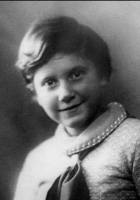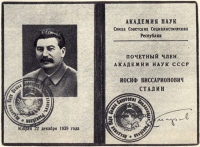| 约瑟夫·斯大林 | |||||||
| |||||||
Stalin launched a command economy, replacing the New Economic Policy of the 1920s with Five-Year Plans and launching a period of rapid industrialization and economic collectivization. The upheaval in the agricultural sector disrupted food production, resulting in widespread famine, such as the catastrophic Soviet famine of 1932-1933, known in Ukraine as the Holodomor.
During the late 1930s, Stalin launched the Great Purge (also known as the "Great Terror"), a campaign to purge the Communist Party of people accused of sabotage, terrorism, or treachery; he extended it to the military and other sectors of Soviet society. Targets were often executed, imprisoned in Gulag labor camps or exiled. In the years following, millions of ethnic minorities were also deported.
In 1939, the Soviet Union under Stalin signed a non-aggression pact with Nazi Germany, followed by a Soviet invasion of Poland, Finland, the Baltics, Bessarabia and northern Bukovina. After Germany violated the pact in 1941, the Soviet Union joined the Allies to play a large role in the Axis defeat, at the cost of the largest death toll for any country in the war. Thereafter, contradicting statements at allied conferences, Stalin installed communist governments in most of Eastern Europe, forming the Eastern bloc, behind what was referred to as an "Iron Curtain" of Soviet rule. This launched the long period of antagonism known as the Cold War.
Stalin made efforts to augment his public image and a cult of personality developed around him; however, his successor, Nikita Khrushchev, denounced his legacy and drove the process of de-Stalinization of the Soviet Union.

